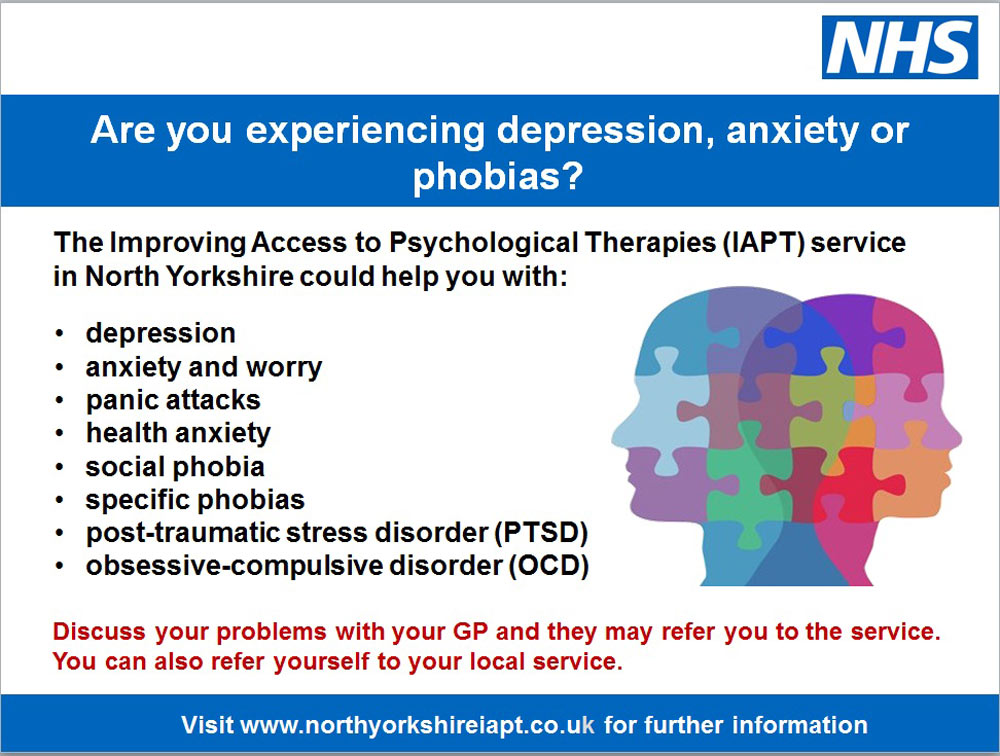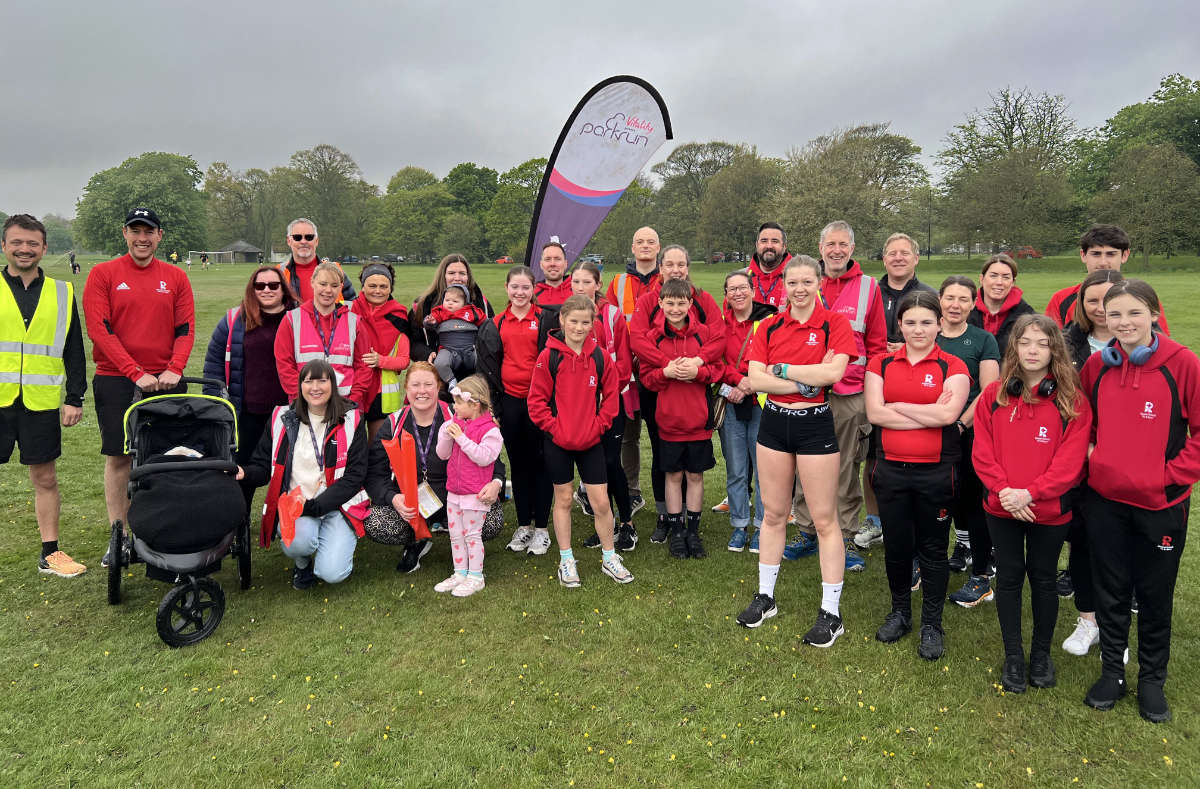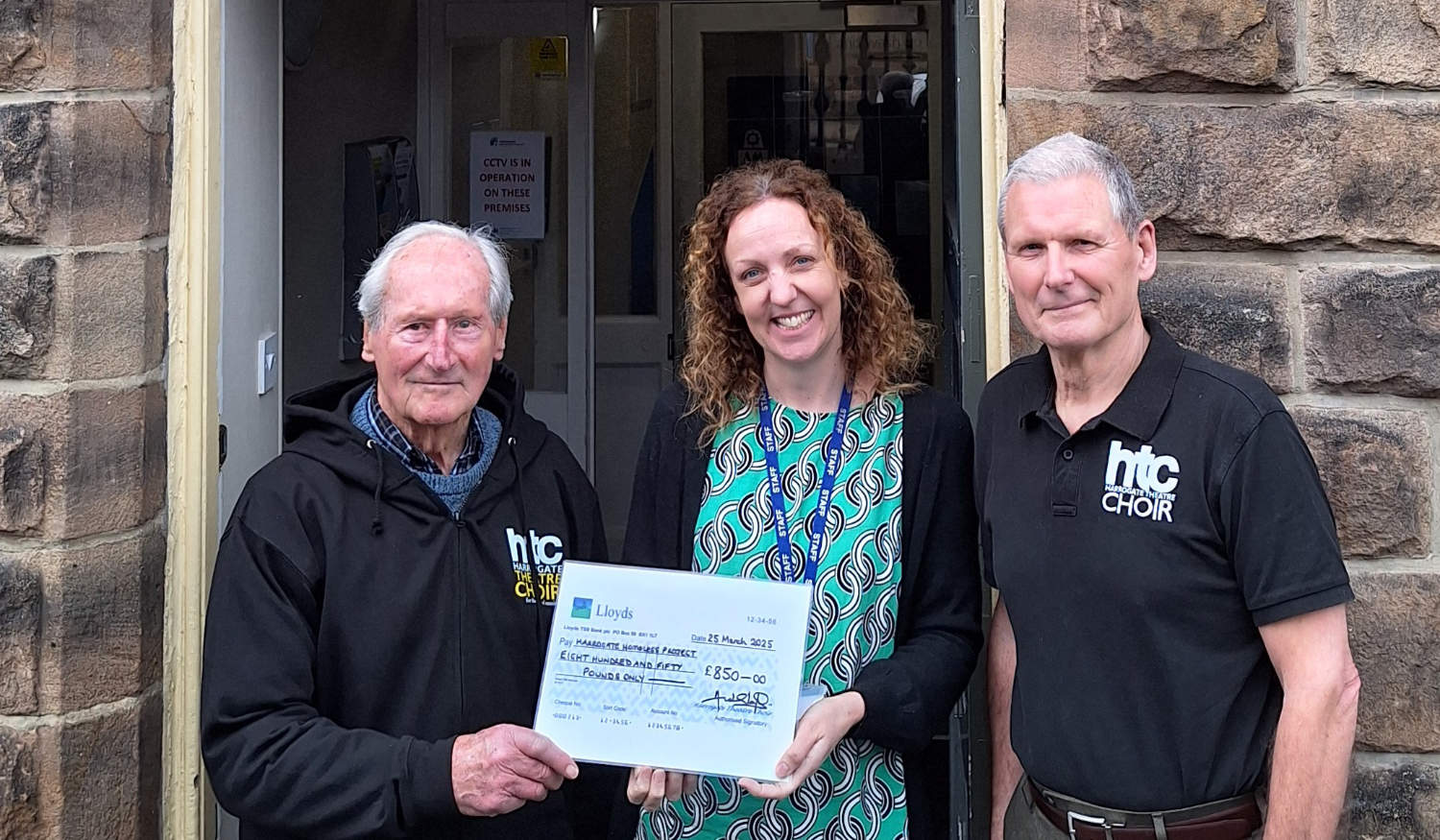A North Yorkshire improving access to psychological therapies (IAPT) service, which offers talking therapies treatments, has launched a new website to make it easier for people to access help and support. This includes an option to self-refer online without having to go through a GP.
The service, which is operated by mental health and learning disabilities provider, Tees, Esk and Wear Valleys NHS Foundation Trust (TEWV), helps people who are experiencing common mental health difficulties such as depression and anxiety.
The new website provides a wealth of information about the support and services available, as well as an option for anyone registered with a GP in North Yorkshire to self-refer online, with a series of questions designed to help determine if the service is suitable.
One in four people are thought to experience mental ill health at some point in their lives. Problems with low mood and anxiety can develop and make it difficult to cope with life’s daily demands. Significant events like unemployment, relationship breakdown, traumatic events or even stress at work can sometimes lead to difficulties which require help and support.
IAPT is a national NHS programme to increase the availability of talking therapy treatments recommended by the National Institute for Health and Clinical Excellence (NICE) to treat anxiety and depression. It aims to use the least intrusive method of care possible to treat and support people, such as guided self-help over the phone or face-to-face, psycho educational courses or computerised / face-to-face cognitive behavioural therapy.
Andy Wright, TEWV IAPT service manager, said:
The new IAPT website will allow people to easily find out more about the service, the support available and treatment options, as well as providing access to a range of convenient and simple online self-help resources for those receiving support through the service.
It will also allow people to self-refer directly, through a quick online form, which will take people through a series of helpful questions to determine whether the service is right for them. If the service is deemed suitable they would then be offered an initial assessment over the phone, after which they will be directed to the most appropriate treatment option for their needs.
People can also make an appointment with their GP, who will be able to discuss options and if appropriate make a referral to IAPT or a suitable alternative.
Speaking on behalf of NHS Scarborough and Ryedale Commissioning Group (CCG), NHS Harrogate and Rural District CCG and NHS Hambleton, Richmondshire and Whitby CCG, mental health lead, Dr Peter Billingsley, said:
The effects of depression and anxiety can be debilitating and brutal. However, we are now living in a society where there is much less stigma attached to mental health difficulties and people feel more able to talk about how they are feeling.
Dr Billingsley, who’s a Scarborough GP and Associate Chair of NHS Scarborough and Ryedale CCG, added:
The new North Yorkshire IAPT website is a brilliant tool; it’s very easy to use and crucially, it’s straightforward for patients to refer themselves to the IAPT service, if they wish, without having to go through a GP first.
The site can be accessed on www.northyorkshireiapt.co.uk
The IAPT service is not a crisis or urgent response service for people who are severely unwell. You should always dial 999 in a medical emergency or call NHS 111 for any urgent concerns. You can also find details about what to do in a mental health crisis on the TEWV website by visiting www.tewv.nhs.uk/services/crisisadvice/








It’s a sad development that IAPT services continue to flourish. They are a poor imitation of a responsible mental health provider. They fail many patients, they fail their staff and they introduce a seriously high level of risk to all involved.
The business model used by IAPT is dishonest as it avoids ethical responsibility by failing to properly assess mental health conditions. Patients can end up all being treated in the same way as IAPT ignores the real problem for the patient and goes for the symptoms instead. Many of IAPT patients are left in serious circumstances due to the staff being brainwashed into not caring.
I urge people who get let down by IAPT to contact the media and explain how you were given a fake treatment and gained nothing. Over 50% of patients find themselves in this situation. IAPT is a financial venture – not a health venture and staff are constantly reminded how their duty is to IAPT – not to the public.